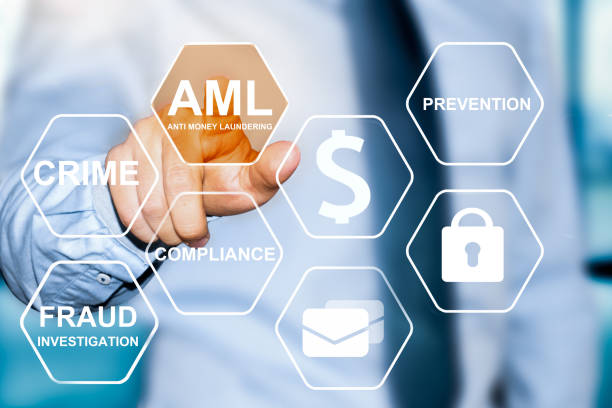AML Solutions: Strengthening Compliance and Combating Financial Crime

Introduction
In today’s global financial landscape, combating money laundering has become a top priority for businesses and regulatory bodies. Money laundering not only funds illegal activities such as terrorism, drug trafficking, and corruption but also threatens the integrity of financial systems. To address this, organizations across industries are turning to AML solutions (Anti-Money Laundering solutions) to ensure compliance, detect suspicious activities, and protect their reputation.
This article explores the importance of AML solutions, their key features, benefits, challenges, and the role they play in safeguarding businesses from financial crime.
What Are AML Solutions?
AML solutions are advanced tools and systems designed to help financial institutions, fintech companies, and regulated organizations comply with anti-money laundering regulations. They use technology to identify, monitor, and report suspicious transactions that may indicate illicit financial activity.
These solutions go beyond manual compliance checks by leveraging automation, machine learning, and real-time monitoring to improve accuracy and efficiency in detecting money laundering patterns.
Why AML Solutions Are Important
Money laundering is a global issue, costing the economy trillions of dollars annually. Without proper systems in place, businesses risk:
- Regulatory penalties: Non-compliance with AML laws can lead to heavy fines and legal action.
- Reputation damage: Being associated with financial crime erodes customer trust.
- Operational risk: Manual processes are prone to errors, delays, and inefficiencies.
- Criminal exploitation: Weak systems can be exploited by fraudsters and criminal networks.
By implementing AML solutions, organizations strengthen their defenses while ensuring compliance with global regulations such as FATF, FinCEN, and EU directives.
Key Features of AML Solutions
Modern AML tools offer a wide range of features designed to enhance detection, reporting, and compliance:
1. Customer Due Diligence (CDD) and KYC
- Automated identity verification
- Risk-based customer profiling
- Ongoing monitoring for changes in customer behavior
2. Transaction Monitoring
- Real-time monitoring of transactions
- Alerts for unusual patterns or large sums of money
- Machine learning algorithms to detect complex laundering schemes
3. Sanctions and Watchlist Screening
- Screening against global sanctions lists (OFAC, UN, EU, etc.)
- Detection of politically exposed persons (PEPs)
- Automatic updates to stay compliant with changing regulations
4. Case Management and Reporting
- Centralized dashboards for investigators
- Automated suspicious activity reports (SARs)
- Audit trails for regulatory compliance
5. AI and Machine Learning Integration
- Predictive analytics to detect emerging threats
- Reduced false positives
- Continuous improvement through adaptive algorithms
Benefits of AML Solutions
Organizations adopting AML solutions gain several advantages:
- Improved compliance with local and international AML regulations.
- Faster detection of suspicious transactions through automation.
- Cost savings by reducing manual workload and compliance errors.
- Enhanced risk management by proactively identifying threats.
- Scalability to handle growing volumes of transactions.
- Reputation protection by ensuring trust and transparency.
Challenges in Implementing AML Solutions
While AML tools are highly effective, organizations may face some challenges:
- High implementation costs for advanced platforms.
- Integration issues with legacy banking systems.
- Data quality concerns if customer information is incomplete or inaccurate.
- False positives leading to unnecessary alerts and workload.
- Evolving regulatory landscape requiring constant updates.
Future of AML Solutions
The future of AML solutions lies in leveraging cutting-edge technologies to stay ahead of financial criminals. Emerging trends include:
- Artificial Intelligence (AI) for more accurate fraud detection.
- Blockchain analytics for tracking cryptocurrency transactions.
- Cloud-based AML systems for scalability and flexibility.
- RegTech partnerships to streamline compliance for smaller businesses.
As regulations tighten and financial crimes grow more sophisticated, businesses will continue investing in robust AML solutions to safeguard their operations.
Conclusion
AML solutions have become indispensable in the fight against money laundering and financial crime. By integrating advanced technologies such as AI, machine learning, and blockchain, these tools enable organizations to meet regulatory requirements, reduce risks, and maintain customer trust.
In an era where financial crimes are evolving rapidly, businesses that adopt strong AML measures are better positioned to protect their assets, reputation, and future.




